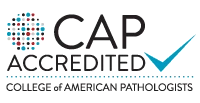Unlock the Power of Your Genes: Advanced Genomic Testing
Discover personalized insights into your health and genetic makeup
The PANDA Core for Genomics and Microbiome Research at the University of Arizona's Steele Children’s Research Center offers Next Generation Sequencing (NGS) testing including Whole Genome Sequencing (WGS), Whole Exome Sequencing (WES), and Gene Panels:
Whole Genome Sequencing (WGS):
- Comprehensive Analysis: Explore the entire genetic code, providing the most in-depth understanding of your genetic makeup.
- Uncover Hidden Risks: Identify potential genetic predispositions to diseases and conditions.
- Personalized Medicine: Guide tailored treatment plans based on your unique genetic profile.
Whole Exome Sequencing (WES):
- Targeted Approach: Focus on the protein-coding regions of your genome, providing valuable insights into disease-causing variants.
- Efficient Testing: A cost-effective option for identifying genetic mutations associated with specific conditions.
- Accelerated Diagnosis: Aid in the diagnosis of rare or undiagnosed genetic disorders.
Gene Panels:
- Targeted Panels: Select specific genes or gene regions relevant to particular diseases or conditions.
- Efficient Screening: Quickly and efficiently identify genetic variants associated with specific health concerns
- Early Detection: Facilitate early diagnosis and intervention for inherited diseases.

Offered tests:
Proband - The proband is a person whose entire genome is sequenced to search for genetic variants associated with a particular disease, disorder, or trait.
Duo - In a duo testing, genetic analysis is performed on two genetically related individuals. This involves a proband and a parent. In duo testing, both individuals' genomes are sequenced to compare genetic variants and identify potential disease-causing mutations or genetic factors contributing to a trait or condition.
Trio - A trio testing involves three related individuals, typically a proband and both biological parents. In trio testing, the genomes or exomes of all three individuals are sequenced. This approach allows for the analysis of genetic inheritance patterns, identifying de novo mutations (mutations present in the child but not in either parent), as well as assessing genetic contributions from both parents to the child's phenotype.
Whole Genome Sequencing:
- WGS Proband (<4 weeks), and expedited WGS Proband (7-14 days, additional fees apply)
- WGS Duo (<4 weeks), and expedited WGS Duo (7-14 days, additional fees apply)
- WGS Trio (<4 weeks), and expedited WGS Trio (7-14 days, additional fees apply)
WGS re-analysis
Whole Exome Sequencing with or without mtDNA (4-6 weeks):
- WES Proband
- WES Duo
- WES Trio
- WES re-analysis
Gene Panel Tests (4-6 weeks):
1 Neurodevelopmental Disorders Panel - 238 genes
2 Epilepsy Panel - 804 genes
3 Heritable Disorders of Connective Tissue Panel - 60 genes
4 Comprehensive Arrhythmia and Cardiomyopathy Gene Panel - 106 genes
5 Comprehensive Common Cancer Panel - 50 genes
6 Hypogonadotropic Hypogonadism Panel - 42 genes
7 Familial Hypercholesterolemia (FH) Panel - 4 genes
8 Familial Dyslipidemia Panel - 28 genes
9 Primary Immunodeficiency Panel - 463 genes
10 Early Onset Monogenic Inflammatory Bowel Disease (IBD) Gene Panel - 107 genes
11 Comprehensive Nephrology Gene Panel - 464 genes
12 Disorders of Sex Development - 203 genes
13 Comprehensive Monogenic Obesity Panel - 68 genes
14 Hereditary Hyperparathyroidism Panel - 9 genes
15 Hypoparathyroidism Panel - 19 genes
16 Neonatal Respiratory Distress Panel - 112 genes
17 Adult Movement Disorders Panel - 473 genes
SUBMIT A CLINICAL ORDER
WGS Workflow

